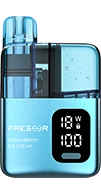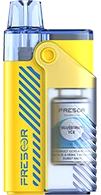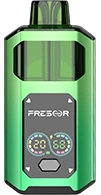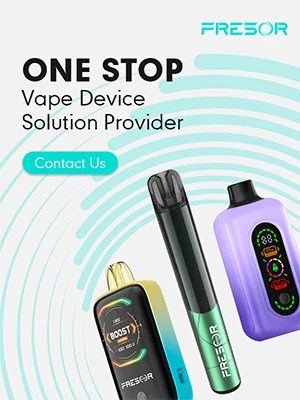Vaping Laws in Germany: An Update on What You Need to Know

12 August 2024
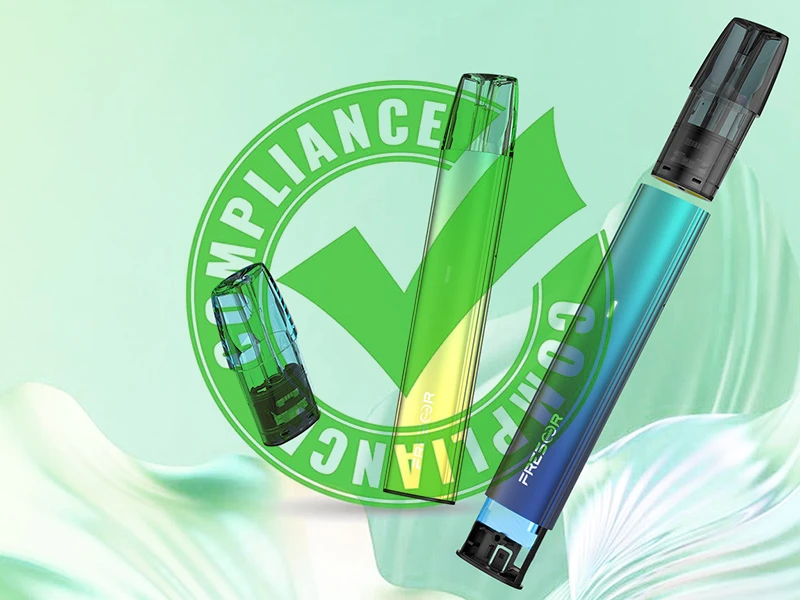
If you haven't learned about the legality of vaping in Germany, hear it now! Vaping in Germany is legal. However, just because it is free to vape in Germany doesn't mean there are no regulations to control it.
In this comprehensive guide, you will learn everything you need to know about the law of vaping in Germany. After reading this information, you will be confident about knowing all the regulations guiding e-cigarettes in Germany.
Overview of Vaping in Germany
Vaping is legal in Germany, but it is regulated by federal law and follows the European Union's Products Directive. Just like traditional smoking products, there are strict restrictions governing the sale, advertising, and promotion of e-cigarettes. These regulations are put in place in line with the young persons act to protect young people.

Vaping in public spaces such as public transport, indoor public places, and other public places is largely prohibited. However, specific rules can vary across different German states. Why are these rules in place if you may ask? They help to control the widespread use of vaping while addressing public health concerns.
There are uniform regulations at the federal level, though individual states may implement additional rules to address local issues.
Vaping Prevalence in Germany
Nicotine vapes or e-cigarettes are legal in Germany, with an approximately 1.5 million adults engaged in vaping. This means about about 2.1% of the adult population in Germany identify as vapers.
Although the prevalence of smoking e-cigarettes in Germany is modest, it also signifies a significant user base within the country. E-cigarette use is predominant among young people and ex-smokers looking for alternatives to traditional tobacco.
Even with the strict regulations on sale and advertising, the vaping market continues to grow. This growth is influenced by trends and public perceptions. There are public health initiatives monitoring and managing the impact of vaping to balance harm reduction for smokers with concerns about new users, particularly minors.
Tobacco Products and Regulations
The purpose of tobacco products and regulations in Germany is to protect human health. This is achieved by controlling e-cigarettes and other tobacco-related items. Let's look at the definition and classification of e-cigarettes, as well as tobacco advertising ban.
Definition and Classification of E-cigarettes
In Germany, e-cigarettes and heated tobacco products are classified as tobacco-related products. The Federal Government law regulates these products via the Implementation of the Tobacco Products Directive and Related Products (2016).
E-cigarette fluid containing nicotine are regarded as highly addictive substance. Hence, their production, sale, and distribution must comply with the European Union's Tobacco Products Directive (TPD).
The EU Tobacco Products Directive (TPD) is in charge of regulating tobacco products in Europe. Its primary aim is to enhance public health. It mandates health warnings, bans flavored cigarettes, limits nicotine in e-cigarettes, and requires standardized packaging. The directive aims to reduce tobacco consumption and prevent youth smoking, promoting a healthier environment across member states.
Tobacco Advertising Ban
The advertising of tobacco products, including e-cigarettes and heated tobacco products on television, radio, and print media was prohibited since 1975. However, billboard and cinema advertising for tobacco products remain permissible, but with strict limitation. These measures are put in place to mitigate the potential health risks associated with tobacco and nicotine addiction.
Smoking Restrictions in Germany
There are no plans to ban vaping in Germany, but there are smoking regulations to protect non-smokers and minors. So far, only 3 states in Germany have comprehensive smoking ban. They include North Rhine-Westphalia, Bavaria and Saarland.
Let's go through these restrictions meant to create smoke-free environment and protect public health:
Public Places and Workplaces
The Federal Non-Smokers Protection Act (FNSPA) restricts smoking in federal facilities, constitutional offices, and public train stations. Smoking is prohibited in public places and workplaces such as public transport, restaurants, etc., to protect against passive smoking. These rules aim to reduce exposure to secondhand smoke and create healthier environments for all.
Age Restrictions and Sales Regulations
Germany law prohibits the sale of tobacco products, including vaping devices and vaping liquids to individuals under the age of 18 years. Therefore, strict age verification at the point of sale is required. Sales regulations and legal restrictions ensure that minors cannot legally purchase these products. This helps prevent early nicotine addiction and protect youth from becoming heavy smoker
Product Regulations and Safety
Let's look at some regulations and safety measures put in place with regards to vaping and vaping devices in Germany.
Product Labeling and Packaging Requirements
Manufacturer or retailers in the vaping industry must include health warnings on the package of nicotine-containing e-cigarettes. This is essential to promote responsible consumption of e-cigarette. Misleading packaging is against the rule of packaging requirements, and it is prohibited.
Nicotine Concentration Limits
Stricter control over nicotine concentration is a central theme in these regulatory changes. The permissible nicotine concentration levels in e-liquids have been standardized (not higher than 20mg/ml), aligning with EU legislation.
Sales and Distribution
The market for vapor products in Germany is growing, with e-cigarettes and e-liquids becoming popular smoking alternatives. For this reason, there is a need to regulate the sales and distribution of e-cigarette to ensure consumer safety and quality standards.
Under this section, we will look at licensing and sales channels for e-cigarette.
Licensing and Permits for Vape Businesses
Before you can sell e-cigarettes and e-liquids in Germany, you must obtain licenses. Compliance with EU regulations, including product safety and advertising restrictions is mandatory. The Tobacco Products Directive categorizes nicotine-containing e-cigarette as tobacco-related products, thus subjecting them to specific regulatory frameworks.
Vape products can only be sold in designated areas and require strict quality checks before allowing them into the market.
Online and Offline Sales Channels
You can buy vape products through both online and offline channels in Germany. However, for this to happen, there are specific regulations to follow. If you want to buy e-cigarette offline, there are specialized vape shops or you can use point of sale in convenience stores.
To sell e-cigarettes via online platforms, you must incorporate age verification mechanism to prevent sales to minors. Both the offline and online channels ensure that products reach consumers while abiding by smoking regulations.
Taxation and Pricing Vape Products in Germany
It is of high importance to also talk about taxation when looking at the laws governing vaping in Germany. Germany's taxation and pricing policies for vape devices aim to control smoking habits and ensure public health while providing a competitive market for business.
Taxes Applicable to Vape Products
In recent years, Germany has implemented taxes on vape products to curb smoking. E-liquids, regardless of flavors, are taxed to discourage harmful smoking habits.
These taxes align with European Union regulations and apply to all vape products sold, including those in bars and retail shops.
The primary tax applicable to vape products is the value-added tax (VAT), known as “Mehrwertsteuer” in German. Other potential taxes, such as excise duties, might be levied on vape products.
Pricing Considerations for Vape Businesses
Vape manufacturers put certain factors in place when considering pricing. Some of these factors include production costs, taxes, and market competition. To remain in business, they must offer appealing prices while covering the tax burden and maintaining quality.
Products are often sold at different prices to cater to various consumer preferences. That way, both premium and budget-friendly options are available.
Businesses in this industry must be prudent in factoring in production and operational costs if they are to succeed in the permitted market for vape products.

Cross-Border Sales and Travel
Germany, as part of the European Union, has specific regulations governing the cross-border sale and travel of vape products. Smokers need to understand this law to avoid getting into trouble.
Vaping rules for traveling in Europe
Each country in Europe has law governing vaping, and travelers within the region must adhere to it. While vaping is generally permitted, specific restrictions vary. For example, some countries have stringent rules on where to smoke or vape, including designated smoking areas and bans in public spaces.
Smokers should also be aware that certain flavors may be restricted in some regions. The sale of vape products across borders must comply with the law of both the exporting and importing countries. This is to make sure that products meets safety and quality standards, to safeguard the health of smokers.
For smooth cross-border sale, businesses must go through these regulations to ensure products are legally permitted and comply with the law. Once you can understand these rules and stick to them, you will hardly encounter any legal issues, thus promoting responsible vaping practices among smokers traveling within Europe.
Before boarding any airline, always do all necessary checks about local rules for vapers in your proposed destination.
Compliance and Enforcement of Vaping Regulations
The compliance and enforcement of vaping regulations in Germany are strict. This is so to ensure public safety. According to the law, all vaping products must adhere to the Tobacco Products Act, making them fall under the same restrictions as traditional smoking items.
First, the minimum age for purchasing vape products is 18. Setting this age restriction will help prevent underage use. Furthermore, all forms of vaping products must meet safety standards before making them available in the market. They must be tested and approved by the relevant authorities.
Additionally, the advertising of vaping products faces strict controls similar to those for smoked tobacco. This is necessary to prevent misleading claims. There are other regulations such as the e-liquids must not contain harmful substances and should avoid flavors appealing to minors, and must align with food safety standards.
Failure to comply with these regulations can lead to severe penalties. Therefore, as manufacturers and retailers, you must remain vigilant to these laws in Germany. This framework is put in place to light the way for safer vaping practices, thus reducing potential health risks associated with the fall in smoking rates.
Summary and Conclusion
To future-proof your vape business, you need to diversify product lines, invest in research and development, and ensure that you comply with evolving regulations. Other crucial things to do is emphasizing sustainability, adopting new technologies, and expanding into international markets.
To build trust and loyalty, you need to focus on consumer education and be transparent in marketing your products. This is the ultimate gateway to securing long-term success.
Featured Articles

Can You Vape in a Hotel Room? A Guide for Travelers, Vapers, and Hoteliers
2024-09-19

Vape Legal and Regulatory Weekly Report - September 14, 2024
2024-09-14
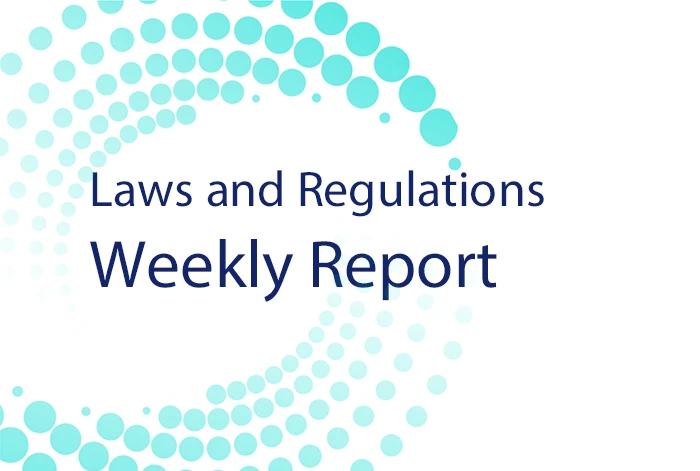
Vape Legal and Regulatory Weekly Report - September 9, 2024
2024-09-09

Vape Legal and Regulatory Weekly Report - September 2, 2024
2024-09-02
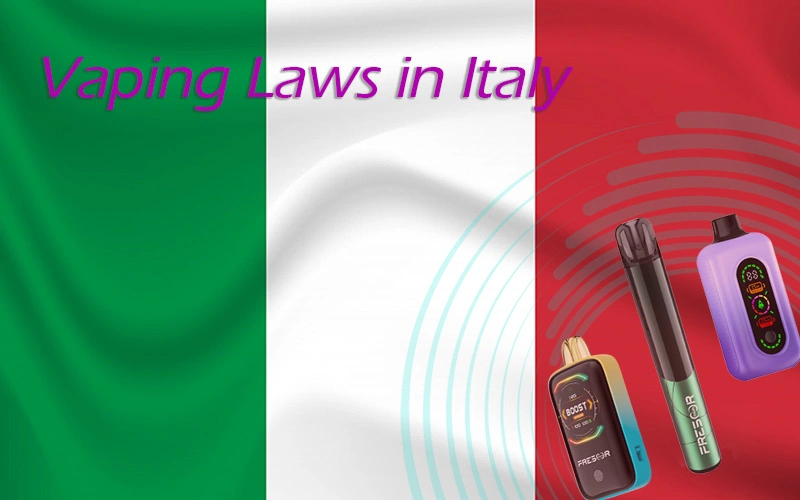
Vaping Laws in Italy: All You Need To Know
2024-08-12








